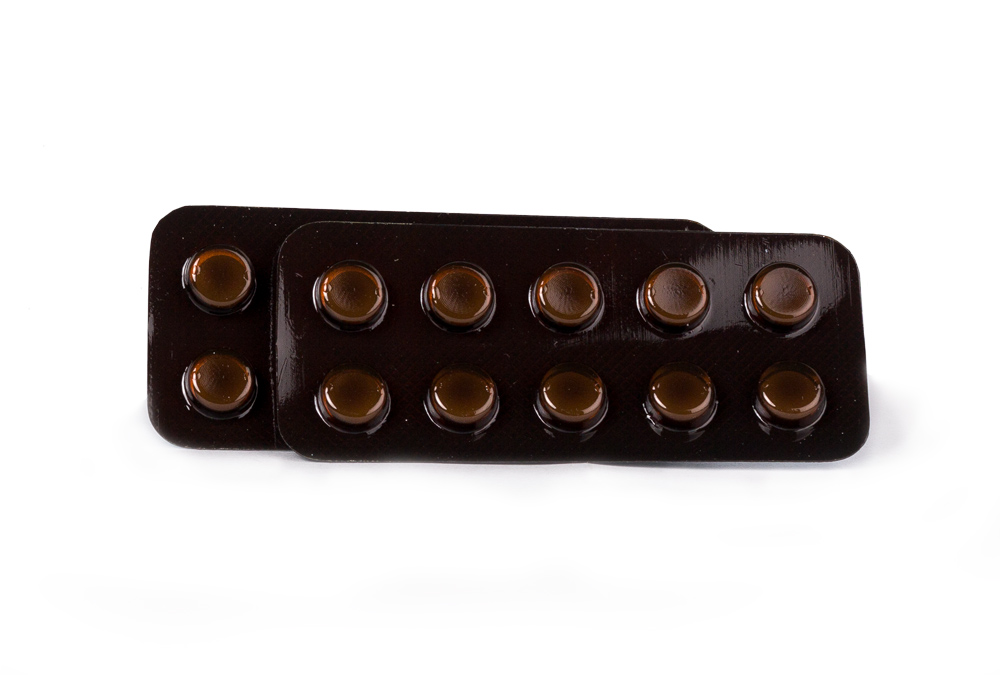Brand Name : COLCHIDOL
Generic Name : Colchicine
Preparation : 0.5 mg Tablet
Pharmacological Category : Antigout
Mechanism of Action (MOA)
COLCHIDOL (Colchicine) exerts its effect by reducing the inflammatory response of polymorphonuclear leukocyte (neutrophils) to the deposited urate crystals and also by diminishing phagocytosis in the joints. COLCHIDOL also inhibits the lactic acid production by leukocytes, thereby interrupting the urate deposition and inflammatory response that sustains the acute gout attack.
Pharmacokinetics
- Absorption : Absorbed from the gastrointestinal tract
- Bioavailability : 45%
- Onset of Action : 18 to 24 hours
- Time to Peak Effect : 48 to 72 hours
- Distribution : Leukocytes, kidneys, liver, spleen (high concentrations) and breast milk
- Protein Binding : 34 to 44%
- Metabolism : Partially liver via deacetylation
- Elimination Half-life : 26.6 to 31.2 hours
- Excretion : Faeces (mostly) and urine (10 to 20%)
Indications and Dosage
Adult :
- Acute Gout
- Two tablets of COLCHIDOL initially, reduce to one tablet of COLCHIDOL every 2 to 3 hours until pain subsides or gastrointestinal toxicity i.e. diarrhoea occurs. Course may be repeated after at least 3 drug-free days. Maximum dose: 6 mg per course.
Note : Although COLCHIDOL 1 mg orally, followed by COLCHIDOL 0.5 mg every 2 to 3 hours is recommended for the treatment of acute gout, many rheumatologists consider this excessive; a low-dose regimen of 0.5 mg no more than 3 times daily has been advocated in preference.
- Prophylaxis of Gout
- One tablet of COLCHIDOL daily, up to three tablets of COLCHIDOL daily may be required in some patients.
Renal Impairment : Not exceeding COLDHIDOL 600 µg daily in patients with Creatinine Clearance (CrCl) less than or equal to 50 ml/min
CrCl (ml/min) Dosage Recommendation
10-50 Reduce dose by 50%.
<10 Avoid use.
Pediatric:
- Gout: Use is not recommended below 18 years old.
Side Effects
COMMON : Diarrhoea, nausea, cramping, abdominal pain, vomiting
LESS FREQUENT : Fatigue, headache, pharyngolaryngeal pain, headache
POSTMARKETING REPORTS : Disseminated intravascular coagulation, cell injury, myelosuppression, sensory motor neuropathy, rash, alopecia, purpura, lactose intolerance, thrombocytopenia, leukopenia, granulocytopenia, pancytopenia, aplastic anemia, elevated liver transaminases, myopathy, azoospermia, oligospermia
Contraindications
Hypersensitivity, coadministration with P-gp inhibitors (eg. verapamil) or strong CY3A4 inhibitors (eg. azithromycin) in patients with hepatic / renal impairment
Warnings / Precautions
- Caution in elderly or debilitated patients.
- Cautioun in patients with cardiac, hepatic, renal or gastrointestinal disease.
- Should be avoided in pregnancy and patients with blood disorders.
Drug Interactions
- Clarithromycin, erythromycin may cause colchicine toxicity.
- Thiazide may increase serum uric acid and interfere with the activity of colchicine.
- Muscle disorders have been reported in concommitant use of ciclosporin and colchicine.
- Colchicine may impair the absorption of vitamin B12. Reversible malabsorption of vitamin B12 may occur because of ileal mucosal function alteration.
Pregnancy Category : C
Presentation
COLCHIDOL 0.5 mg : A box of 10 blisters, each blister of 10 tablets



